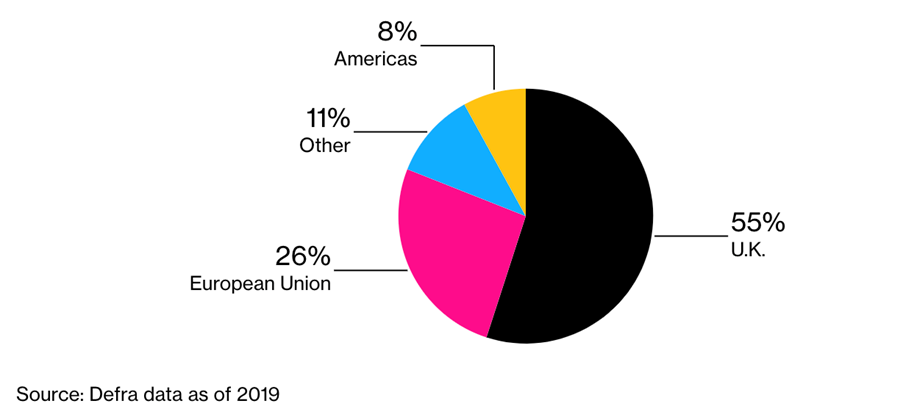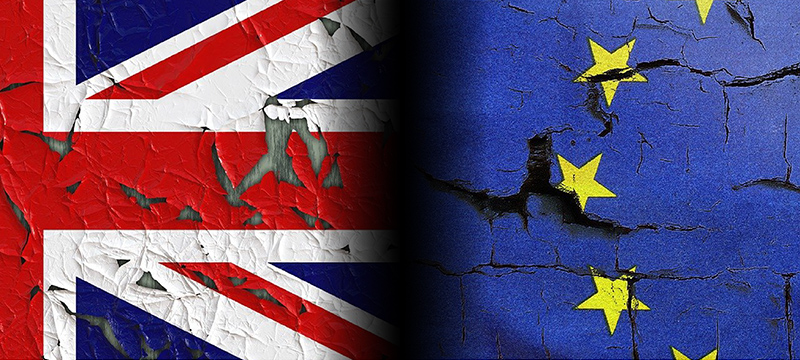The New Deal in Focus
After 4 years of negotiating, the UK-EU deal was approved in UK parliament on Wednesday 30th December, two days before the end of our transition period out of the bloc. Avoiding the worst-case scenario of leaving the EU and facing harsh tariffs after 31st December, is the new deal a good deal for business? This article explores the pros and cons of Boris’ last-minute bargain and how the deal might affect business in the UK.
Automotive
The auto manufacturing industry in the UK generated £79 billion last year in sales, employing 180,000 people. Investment in UK car manufacturing is paused until the deal comes into effect if they decide to do so after years of being put on hold.
| Pros | Cons |
| · Tariff-free trade exists but only under what percentage components originate from. i.e parts made in the UK as well as EU count as local content | · Although producers are spared the threat of new tariffs, they face paperwork and new standard regulations
· Manufacturers will have to get their products approved separately in both markets, and production processes
|
Car batteries are largely exempt from component regulations as the region still heavily relies on exports from outside of the bloc until 2023, when European battery production is expected to be more advanced.
Retail
The idea of tariffs and quotas was a thorny issue for British retailers with low-margin profits, as supermarket chains like Tesco Plc and J Sainsbury Plc import 26% of food consumed in the UK from the European Union.

| Pros | Cons |
| · No new tariffs mean no extra costs which would have been passed on to consumers | · However, cost may occur for the extra staffing to manage paperwork for customs, which could filter down to being passed on to consumers of retailers with low-profit margins
|
Drugs
The pharmaceutical industry achieved a mutual recognition agreement protecting the sector from unnecessary duplications and costs at least in part, however the document does not mention the mutual recognition of batch testing.
| Pros | Cons |
| · Inspections of drug manufacturing facilities to be valid in both markets | · No mutual recognition of batch testing, which suggests safety tests may need to be conducted again before they are sold in the EU
|
Aerospace and Airlines
An already heavily regulated industry, contributing £20 billion a year to the UK economy, has long dealt with standards to the minute detail. The deal sets out an agreement on safety that maps out an approach based on mutual recognition and cooperation.
| Pros | Cons |
| · The UK will oversee its own aircraft safety regime based on mutual recognition and cooperation | · UK shareholders no longer count towards EU ownership requirements, threatening the rights of airlines like IAG and EasyJet Plc. Both have agreed to make changes their shareholder structure to meet the 50% ownership threshold.
|
Chemicals
The UK’s biggest manufacturing export sector, with an annual turnover of over £31 billion, contains signals that cooperation will continue. However, the full spectrum of chemicals may still be at risk.
| Pros | Cons |
| · Agreement includes a commitment on sharing data on properties and hazards of chemicals required by REACH, in order to continue Britain’s full access to chemicals | · Chemical makers are yet to be told how aligned the UK’s new standalone regulatory framework will stand against Europe’s Gold Standard Registration, Evaluation & Authorization of Chemicals regime |
If talks fail to achieve regulatory alignment, the industry could face a £1 billion bill to repeat all the safety documentation.
Services
Making up 80% of the UK economy, services encompass a wide set of activities including IT, law, accountancy, insurance, consulting and architecture.
| Pros | Cons |
| · Short-term business travel continues to be unhindered, but UK business visitors will only be able to travel in the EU up to 90 days in any 180-day period | · Firms will have to comply with extra bureaucratic rules to have the right to provide services in an EU country, as professional qualifications are no longer automatically recognised
|
The EU is Britain’s largest export market for services, so without automatic recognition of qualifications, this makes the process for professionals longer as they will need to check each country’s rules on qualifications and whether they are still recognised. The UK and EU have however pledged to keep talking to try to improve access for the service sector in the future.
Data
According to the Confederation of British Industry, movement of data generates £174 billion of value to the UK economy.
| Pros | Cons |
|
· An interim solution that protects current data flow until a legal agreement is reached. EU officials have said a decision will be made to certify the UK data protection standards comparable to the blocs strict privacy laws in mid-2021.
|
The UK is no longer under any obligation to comply with EU data protection laws. It will, however, continue to exchange data the same way as before for at least 4 months where rules about storing and processing data is still to be decided.
Agriculture
The new deal on tariffs helps products from barley to lamb remain competitive in the EU.
| Pros | Cons |
| · British farmers benefit from the new tariff agreement which exports 60% of the nation’s agriculture | · Queues at borders may affect the quality of perishable goods where fresh-meat shipments won’t be prioritized. This may require traders to switch to lower-value frozen supply
|
Fishing
The leave campaigns most prized argument to leave the EU, despite it only contributing 0.2% to UK GDP. The agreement struck with the bloc on fishing suggests this is where the UK compromised, settling on fish.
| Pros | Cons |
| · 25% of the EU rights to catch fish in UK waters will be transferred back to British fisheries
|
· This is much less than the 80% cut originally demanded in the deal |
Over the next 5 to 6 years however, the UK will gradually gain a greater share of its own waters. Starting in 2026, both sides will hold regular talks on fishing access. The UK could choose to ban EU fishing boats after the deadline, but that would entitle the EU to introduce taxes on British fish in response.
Summary
The deal struck on Monday 28th December appears to be positive on tariffs, but not so positive on standards and logistics. There are no new tariffs and quotas after Dec. 31, meaning there will be no import taxes on goods crossing between Britain and the continent – a welcome sigh of relief for companies giving greater scope to focus on containing the damage of the coronavirus pandemic. However, no mutual recognition of standards, no automatic recognition of professional qualifications in the EU and extra customs paperwork at EU borders, lead to new obstacles and costs for Britain’s industry.
Get legal help on Brexit
At Leonard Solicitors we offer a range of legal services covering Corporate and Commercial Law. Compliance and Corporate Governance is where we can help the continuity and success of your business during the changing landscape of Brexit. We help businesses from licences and permissions to compliance and internal operations, ensuring the government’s and citizens interests are protected. We also represent your business when liaising with offices responsible for the grant of permits, allowing you to focus on the primary goals. If you have a query on how we can help with compliance throughout the UK’s new relationship with the EU, please contact us.
Disclaimer: Information on this webpage is not intended for legal purposes or advice. If you require legal advice or services you should seek a professional legal practitioner.
Get to know us!
We send weekly updates containing news articles and blogs on the latest trends happening in the UK and abroad. If you want to get to know us better, sign up below.
When you sign up for our newsletter and occasional tailored communications you agree to our Privacy Policy.




